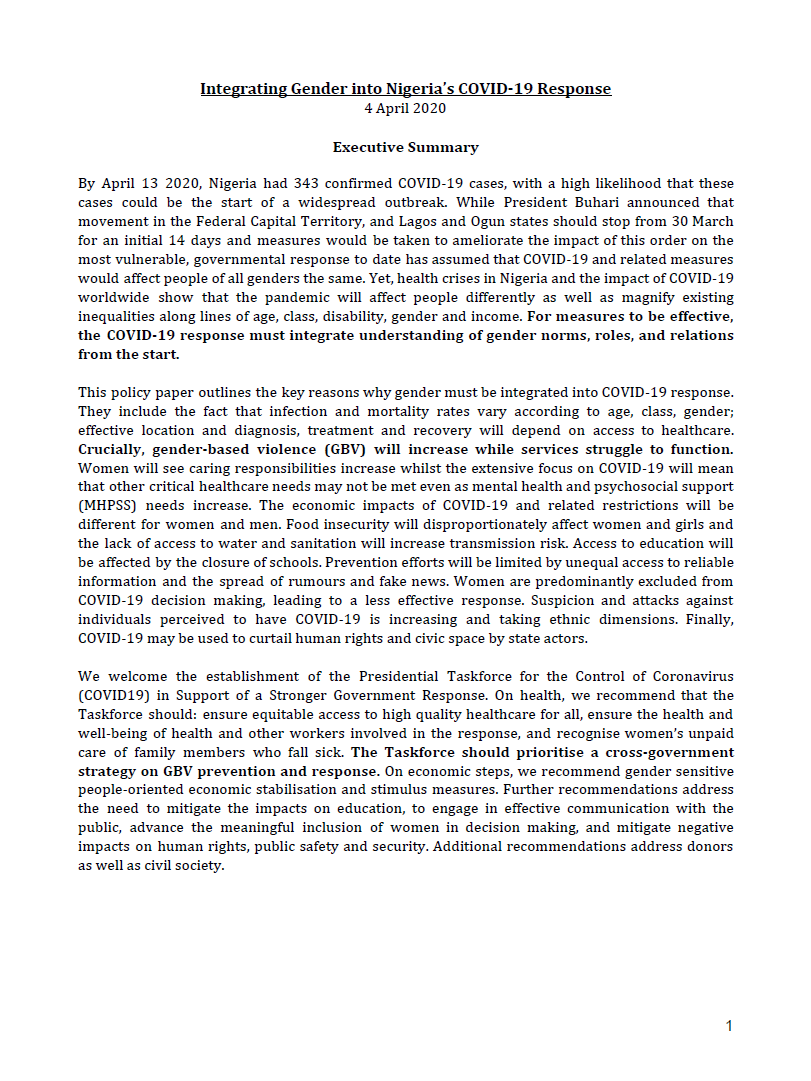By April 13 2020, Nigeria had 343 confirmed COVID-19 cases, with a high likelihood that these
cases could be the start of a widespread outbreak. While President Buhari announced that
movement in the Federal Capital Territory, and Lagos and Ogun states should stop from 30 March
for an initial 14 days and measures would be taken to ameliorate the impact of this order on the
most vulnerable, governmental response to date has assumed that COVID-19 and related measures would affect people of all genders the same. Yet, health crises in Nigeria and the impact of COVID-19 worldwide show that the pandemic will affect people differently as well as magnify existing inequalities along lines of age, class, disability, gender and income. For measures to be effective, the COVID-19 response must integrate understanding of gender norms, roles, and relations from the start. This policy paper outlines the key reasons why gender must be integrated into COVID-19 response.
This website uses cookies so that we can provide you with the best user experience possible. Cookie information is stored in your browser and performs functions such as recognising you when you return to our website and helping our team to understand which sections of the website you find most interesting and useful.






